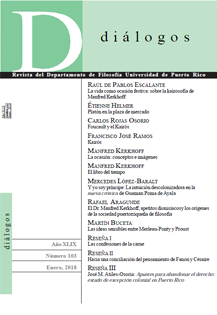Abstract
In the year 1970 the French philosopher Gilles Deleuze published his book Spinoza: Practical Philosophy. Deleuze had noticed that a lot of philosophers and 'common people‘ had re-discovered the positive impact that Spinoza‘s philosophy could have in their personal, daily lives, though he also notes that this is something that has happened before. In my contribution I defend that this is not due to a simplification or popularisation of his philosophy, but to the contrary, it is the effect of his metaphysics itself, written down in his Ethics, if you accept them. I defend also that Spinoza‘s philosophy isn‘t difficult to understand (his opponents and contestants always did very well!) but –still– difficult to accept. Nowadays there are even some psychotherapeutic methods making use of Spinoza‘s philosophy, especially his philosophy of the passions, but because of this it sometimes loses its philosophical stake. In my contribution I defend and show how it is possible to work as a philosopher using Spinoza‘s philosophy, in daily life and with everybody, for instance against feelings of guilt and anger.Downloads
Download data is not yet available.

